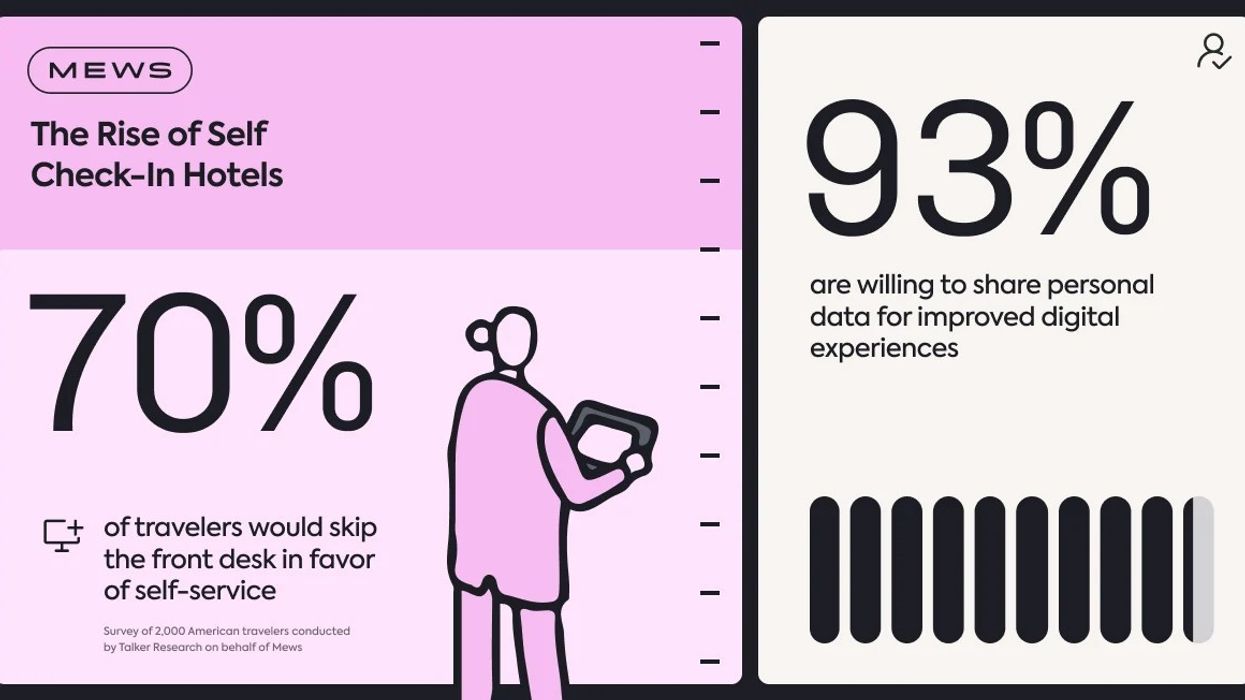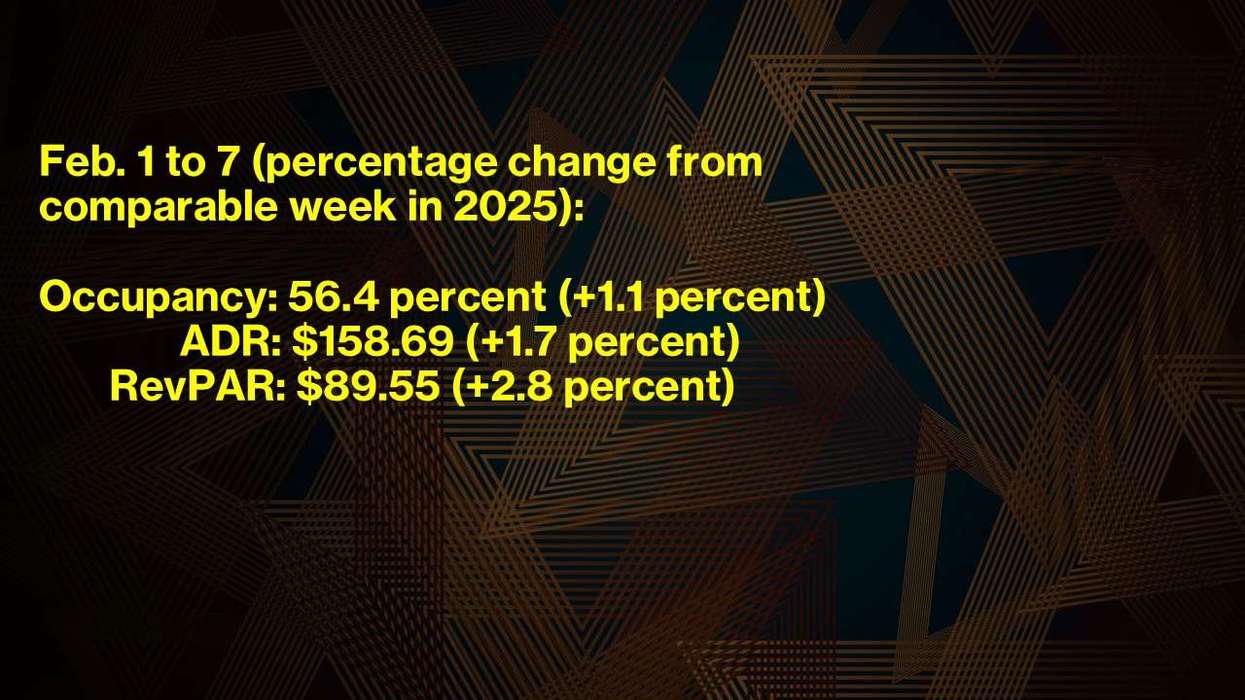Why Do Most U.S. Travelers Prefer Hotel Self Check-In?
APPROXIMATELY 70 PERCENT of American travelers are likely to check into a hotel using an app or self-service kiosk instead of a front desk, according to Mews Systems, Inc., a hospitality cloud provider. The figure rises to 82 percent among Gen Z travelers.
A Mews-commissioned survey of 2,000 U.S. travelers did not highlight frustrations with traditional hotel operations but found that 82 percent of current hotel loyalty members report issues with existing systems, including long check-in times, limited flexibility and service models that do not meet current needs.
"Since bringing Mews Kiosks to hotels in the U.S., 30 percent of guests check in via the kiosk, cutting check-in time by a third and freeing up staff to truly welcome their guests and provide better experiences throughout their stay,” said Richard Valtr, Mews founder. “Not to mention, Kiosks drive 25 percent higher upsells in our hotels today. Waiting in the lobby queue is simply not a hospitable experience for today's travelers—it's another example of how, when the technology works, guests value convenience over tradition."
U.S. leads in digital adoption
Mews data showed that U.S. hotels using self-service technology have higher adoption rates than the global average. Around 30 percent of reservations at kiosk-enabled hotels are checked in through Mews kiosk in the U.S., compared to 20 percent globally. Additionally, 10.5 percent of total U.S. reservations use the Mews guest portal for check-in, a 20 percent higher rate than the global average of 8.6 percent.
Hotels in the U.S. also are seeing results, the report said. Guests who check in via kiosk are three times more likely to purchase an upsell and generate nearly 70 percent more upsell revenue per check-in compared to those who use the front desk.
Additionally, nearly 80 percent of guests most likely to return to a hotel cite personalized amenities as the reason, Mews said. Among Gen Z travelers, 89 percent say this influences their decision.
Ninety-three percent of travelers are willing to share personal data to improve their experience with hotels, the report found. This includes preferences such as check-in and check-out times at 60 percent, gender preferences at 49 percent, food and beverage choices at 48 percent, age at 47 percent and desired amenities and activities at 46 percent.
Valtr said the message from travelers is clear: frictionless convenience is the new standard.
“This isn't about eliminating human interaction – it's about empowering both guests and staff to create more meaningful touchpoints and experiences,” he said. “Hotels embracing this evolution will earn the loyalty of tomorrow's most valuable guests."
A Mews survey in 2024 found that about three out of four travelers agree Americans are prioritizing travel and prefer a digital, self-service experience for hotel stays. Nearly 80 percent of U.S. travelers favor hotels with fully automated front desks or self-service kiosks and more than 40 percent prefer checking in through a hotel's website, app, or digital kiosk.






